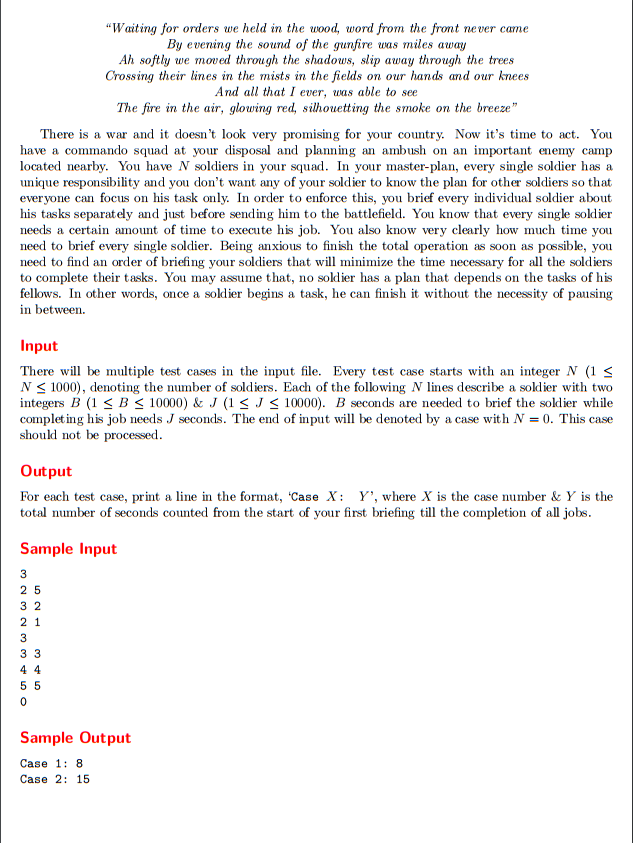
题解
由贪心的想法,很容易猜想到按$J$从大到小排序是对的。
如何证明呢?
我们拿两个任务出来单独考虑,因为显然某个任务是否完成与其他任务无关。
用反证法,我我们交换两个任务先后顺序。
我们假设任务$X$的$J$大于任务$Y$的$J$,由上,$X$在$Y$前安排。
那么分为两种情况,$X$比$Y$先完成和$Y$比$X$先完成,再用“相邻交换法”讨论一下,正确性很显然。
1 #include <map> 2 #include <set> 3 #include <cmath> 4 #include <ctime> 5 #include <queue> 6 #include <stack> 7 #include <cstdio> 8 #include <string> 9 #include <vector> 10 #include <cstdlib> 11 #include <cstring> 12 #include <iostream> 13 #include <algorithm> 14 #define LL long long 15 #define Max(a, b) ((a) > (b) ? (a) : (b)) 16 #define Min(a, b) ((a) < (b) ? (a) : (b)) 17 using namespace std; 18 const int N = 1000; 19 20 int n; 21 struct tt { 22 int b, j; 23 }a[N+5]; 24 25 bool comp(tt a, tt b) { 26 return a.j > b.j; 27 } 28 29 int work() { 30 for (int i = 1; i <= n; i++) 31 scanf("%d%d", &a[i].b, &a[i].j); 32 sort(a+1, a+n+1, comp); 33 int ans = 0, last = 0; 34 for (int i = 1; i <= n; i++) { 35 last += a[i].b; 36 ans = Max(ans, last+a[i].j); 37 } 38 return ans; 39 } 40 41 int main() { 42 int cnt = 0; 43 while ((~scanf("%d", &n)) && n) { 44 cnt ++; 45 printf("Case %d: %d ", cnt, work()); 46 } 47 return 0; 48 }